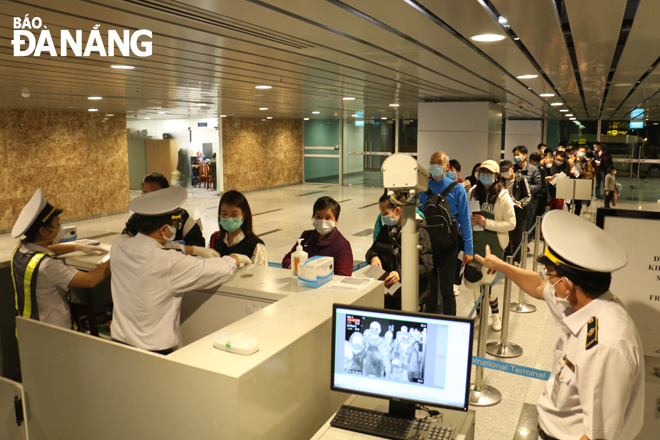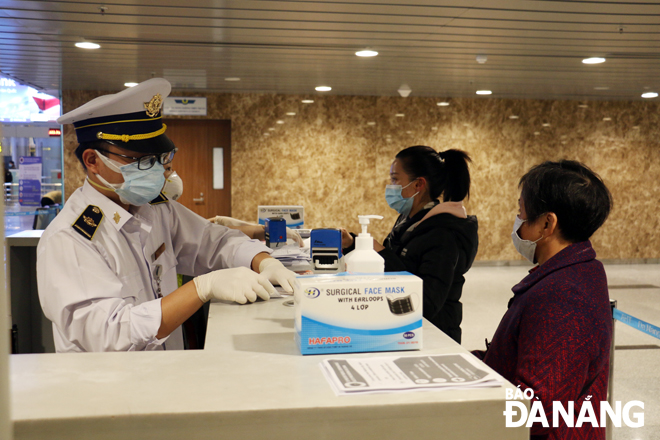The city asks permission from national governenment to conduct tests for coronavirus amid growing concerns with outbreak
Amid growing concerns over the new coronavirus, Da Nang has made great efforts to closely monitor the situation, detect disease early, isolate and treat suspected cases in order to stop the spread of the disease.
 |
| Tourists queueing up for body temperature measurement and entry procedure handling at Da Nang International Airport |
Every day, staff at the Da Nang International Airport handle entry/exit procedures for about 100 delegations of visitors.
The airport has been already equipped with 7 infrared thermal scanners. If a passenger gets a fever, the airport’s staff will immediately put the suspected cases under the health checkups. The suspected cases will be re-checked body temperature, and identified accompanying symptoms.
However, it will take a long time to check body temperature for groups of more than 200 people each, or even thousands of cruise ship passengers. This can lead to congestion and significant delays at entry/exit procedure handling counters at the airport and seaports.
Therefore, the city is now facing a shortage of infrared thermal scanners to ensure the quick and convenient body temperature measurement at the airport and port for thousands of visitors every day.
Dr Ton That Thanh, the Director of the municipal Centre for Disease Control (CDC), remarked that about 8 billion VND from the city budget would be spent for his unit to buy medical equipment during the year. Of this, nearly 1.6 billion VND would be poured into purchasing thermal scanners.
In attempting to prevent the spread of the new virus, the city's health sector has asked the permission from the Department of Medical Examination and Treatment Management of the Vietnamese Ministry of Health, and the Nha Trang Pasteur Institute, to conduct tests for the virus.
Under the current process, the samples of suspected cases will be sent to the Nha Trang Pasteur Institute to test for the virus. Due to geographical distance and increasing number of samples, the results are often back in between 48 hours and 72 hours, even longer. Delays in receving results will cause difficulties for the city to promptly provide treatment for infected cases if any.
 |
Dr Thanh affirmed that CDC has enough medical facilities and human resources to fully meet the requirements for testing.
In particular, the unit’s laboratory met biosafety requirements in 2019. Also, molecular biology laboratory features 3 separate rooms for reaction solution mixing, RNA extraction, and PCR machines.
In addition, CDC has 12 specialised equipment for testing samples of infectious diseases, and a group of qualified and experienced medical workers.
Dr Thanh suggested that training courses on testing process for the new virus by Realtime-RT-PCR technique should be organised for CDC’s staff in order to allow them to conduct tests on suspected cases.
By PHAN CHUNG - Translated by MAI DUNG